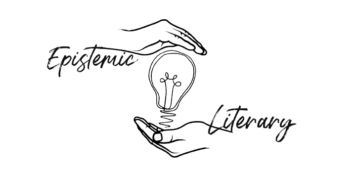Written by Joy E. Krinsky
One of the jewels of my Portland neighborhood is the Evergreen Cemetery. Wandering
among the paths and lanes of history, there is always something new to notice. A name, a statue,
a date, a symbol, something broken, repaired, worn, unnamed. “Mother.” “Father.” “Baby.” “Our
Darling.”
And many named as well and well recognized: Dow, Fessenden, Stevens. And of course
Baxter, of city and state government renown. The Baxter family monument is in Evergreen. And
several neighborhood streets are named for Baxter children. Alba (d. 1873 at age 4) is my street.
Mabel (d. 1865 at 5 mos.) is the next street over. These two young girls’ grave markers are part
of the Baxter monument. An interpretive sign nearby includes a photo inset of the original
cemetery log, with a notation beside Mabel’s and Alba’s names: “in one box.”
Though born and died years apart, whose namesake streets lie side by side, so too do these
young sisters in their final resting place.
It continues to astonish me—not really surprise me—but still captivates my imagination.
These two girls. Died years apart. But, “in one box.”
***
David was cremated.
His is the first family death—for me—which was not a cemetery burial, not a body in a
plain pine coffin loosely closed with wooden pegs, lowered into the ground, and dirt by handfuls,
and then shoveled, to cover it as El Maleh Rachamim is intoned.
So now there are ashes. In a bag. In a box. In a carton. On a shelf. In a cabinet. In a house.
Maybe it is the Jewishness of me that it seems so strange to have the remains of a body in my
house. And, too, the novelty of it is still astonishing. Not surprising, but it does capture my
imagination.
There are some benefits I suppose. One is that these ashes can be split up, distributed, shared,
buried in multiple locations, dispersed to the wind or the sea. “Final resting place” becomes a
multitude of places.
Having no permanent marker is different.
No place to return to, and place a stone as is the Jewish custom, is certainly different.
And no family plot is certainly different as well.
So now I am faced with questions and decisions regarding David but also regarding myself.
All those deferred decisions and choices and planning, well—there is no one else. Since it is
only me now. Only me. Time to get this together so my children will not be burdened with these
questions and decisions.
Thoughts of my own “final arrangements” come to the forefront.
I think about home, what is deeply my home. Is Maine my real home? And if not, is it my
children’s home? If I am buried here in Portland in one of the Jewish—or not so Jewish—
cemeteries, perhaps on some long drive, or not so long at a rest stop at the side of the road, eyes
will be cast downward, to the earth below, to find that stone—whether smooth or craggy, round
or flat, brown or gray, heavy or light—to place upon it when they get there. Then Samuel and
Tova will have an opportunity, hopefully many opportunities—to place a stone on my grave.
Though I haven’t made up my mind or made any plans, or am close to decisions, I do think
that no matter what happens with David’s ashes—whether they are split among family, or cast
to his beloved Casco Bay from aboard the sea taxi, or in the Tanzanian countryside that he
longed to see—at least a portion, a part, a dram, hopefully the part that I did love and that did
love me, I will hold with me, and have buried with me. In one box.
.
Joy E. Krinsky began writing in the summer of 2019 with the obituary, and later eulogy, for her husband. Since that time, she has studied healing through writing, and is currently working on a memoir, Every Little Thing. Two of her essays were published by HerStry in 2023: “Sacred Text” as one of the Women of Faith essays and “Darkest Night” was a Winter Stories essay.
Her memoir is described here:
Following the suicide of her husband, Joy E. Krinsky embarks on a journey of self exploration and discovery. Grief is now a kaleidoscope lens through which she experiences the world. Room by room, season by season, family relations, the everyday items that make a life that has been abruptly shaken up and shifted. Through this collection of essays, she invites us on this journey, recovering the past, creating the future, and discovering the richness of the present.
Joy E. Krinsky lives in Portland, Maine.
